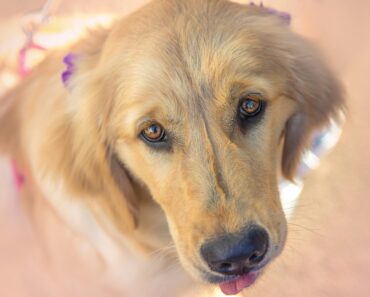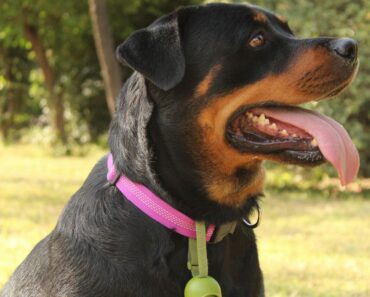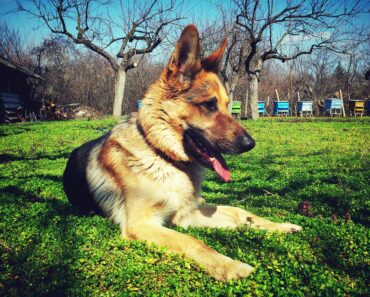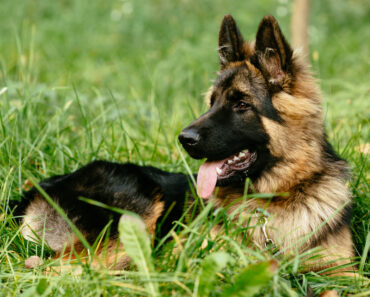
Introduction
Dachshunds, often affectionately called “wiener dogs” due to their long, sausage-like bodies, are one of the most recognizable and beloved dog breeds in the world. Originally bred in Germany to hunt badgers, these small yet fierce dogs have become popular companions for families and individuals alike. Their unique appearance, combined with their spirited personality, makes them a breed that stands out in any crowd. This comprehensive guide will delve into the history, personality, care needs, and health considerations of Dachshunds, providing everything you need to know about owning and loving this remarkable breed.
History and Origin
The Dachshund’s history dates back to the 15th century in Germany, where they were bred to hunt badgers, rabbits, and other burrowing animals. The name “Dachshund” comes from the German words “Dachs” (badger) and “Hund” (dog), literally translating to “badger dog.” Their long, low bodies were perfect for digging into burrows, while their courageous and determined nature made them formidable hunters.
Dachshunds were first recognized by the American Kennel Club (AKC) in 1885, and since then, they have gained immense popularity in the United States and worldwide. They are available in three coat varieties: smooth, long-haired, and wire-haired, each with its own unique characteristics and charm.
Dachshund Personality and Temperament
Dachshunds are known for their lively and bold personality. Despite their small size, they have a big dog attitude, often showing fearlessness in the face of larger animals. This bravery, combined with their curious and playful nature, makes them excellent companions for those who appreciate an active and engaging pet.
One of the most endearing traits of Dachshunds is their loyalty to their owners. They form strong bonds with their families and can be very affectionate, often following their favorite person around the house. However, this strong attachment can sometimes lead to separation anxiety, so it’s important to train them to be comfortable when left alone.
Dachshunds are also known for their stubbornness. This trait can make training a challenge, but with patience and consistency, they can learn to follow commands and behave well. Positive reinforcement methods, such as treats and praise, work best with this breed. Early socialization is also crucial, as it helps them become well-adjusted and confident adults.
Types of Dachshunds: Smooth, Long-Haired, and Wire-Haired
Dachshunds come in three distinct coat varieties, each with its own unique appearance and care needs:
- Smooth Dachshunds: The most common variety, smooth Dachshunds have short, sleek coats that require minimal grooming. A weekly brushing to remove loose hairs and a bath when necessary is usually sufficient to keep their coat healthy and shiny.
- Long-Haired Dachshunds: These Dachshunds have a beautiful, flowing coat that requires regular grooming to prevent matting and tangles. Long-haired Dachshunds should be brushed several times a week and may need professional grooming to keep their coat in top condition.
- Wire-Haired Dachshunds: Wire-haired Dachshunds have a coarse, bristly coat that resembles that of a terrier. Their coat requires regular brushing and occasional trimming to maintain its shape. Wire-haired Dachshunds often have a more rugged appearance and a slightly different personality compared to their smooth and long-haired counterparts.
Caring for Your Dachshund
Caring for a Dachshund involves meeting their physical, emotional, and social needs. Here’s what you need to know:
- Diet and Nutrition: Dachshunds are prone to obesity, so it’s crucial to monitor their diet carefully. They should be fed high-quality dog food that is appropriate for their age, size, and activity level. Treats should be given in moderation, and table scraps should be avoided to prevent weight gain. Regular exercise is also essential to keep them fit and healthy.
- Exercise Needs: Despite their small size, Dachshunds are energetic dogs that need regular exercise to stay healthy and happy. Daily walks, playtime in the yard, and interactive games like fetch can help burn off their energy. However, due to their long backs, it’s important to avoid activities that involve jumping or climbing, as these can lead to back injuries.
- Grooming: The grooming needs of a Dachshund depend on their coat type. Smooth Dachshunds require minimal grooming, while long-haired and wire-haired varieties need more frequent brushing and maintenance. Regular nail trimming, ear cleaning, and dental care are also essential to keep your Dachshund in good health.
- Training: Dachshunds are intelligent but can be stubborn, making training a challenge. Consistent, positive reinforcement methods work best, and early socialization is key to preventing behavioral issues. Enrolling your Dachshund in puppy classes can also help them learn basic commands and manners.
- Health Care: Regular veterinary check-ups are important for monitoring your Dachshund’s health. Vaccinations, parasite prevention, and dental care are all essential components of a Dachshund’s healthcare routine. It’s also important to be aware of the breed’s common health issues, such as back problems, obesity, and dental disease, and take preventive measures.

Common Health Issues in Dachshunds
Dachshunds are generally healthy dogs, but like all breeds, they are prone to certain health conditions. Understanding these potential issues can help you provide the best care for your Dachshund.
- Intervertebral Disc Disease (IVDD): Due to their long backs, Dachshunds are at a higher risk of developing IVDD, a condition where the discs between the vertebrae of the spine deteriorate or herniate, leading to pain, nerve damage, and even paralysis. Preventative measures include avoiding activities that put strain on their spine, such as jumping from heights, and maintaining a healthy weight to reduce stress on their back.
- Obesity: Dachshunds love to eat, and their small size means that even a little extra weight can lead to health problems, including back issues and joint pain. Monitoring their diet and ensuring regular exercise is key to preventing obesity.
- Dental Disease: Dachshunds are prone to dental issues, so regular teeth brushing and dental check-ups are important. Providing dental chews and feeding dry kibble can also help keep their teeth clean.
- Progressive Retinal Atrophy (PRA): PRA is an inherited condition that causes the gradual deterioration of the retina, leading to vision loss. While there is no cure for PRA, regular eye exams can help detect the condition early.
- Heart Disease: Dachshunds are also susceptible to heart disease, particularly mitral valve disease, which affects the heart’s ability to pump blood effectively. Regular veterinary check-ups and early detection can help manage this condition.
Living with a Dachshund: What to Expect
Dachshunds are adaptable dogs that can thrive in a variety of living situations, from apartments to houses with large yards. However, they do best in homes where they can be close to their family, as they crave companionship and do not like being left alone for long periods.
Their small size makes them a good choice for city living, but they still need regular exercise and mental stimulation. Dachshunds are known for their barking, which can be a challenge in close quarters, but with proper training and socialization, this behavior can be managed.
Dachshunds are generally good with children and can form strong bonds with them, but due to their delicate backs, young children should be taught how to handle them gently. They can also get along well with other pets, especially if they are raised together, but their strong prey drive may cause them to chase smaller animals.
Dachshunds and Their Relationship with Humans
Dachshunds are known for their loyalty and love for their human companions. They are affectionate dogs that enjoy spending time with their family, whether it’s cuddling on the couch or playing in the yard. Their playful and curious nature makes them a joy to have around, and their strong personality often leads to a close bond with their owners.
However, Dachshunds can also be independent and strong-willed, which can sometimes be mistaken for stubbornness. They thrive on attention and can become bored or anxious if left alone for too long. Providing them with plenty of mental and physical stimulation, as well as positive reinforcement training, can help keep them happy and well-behaved.
Choosing the Right Dachshund for Your Family
If you’re considering adding a Dachshund to your family, it’s important to choose a dog that fits your lifestyle. Consider factors such as the dog’s age, coat type, and personality when making your decision.
- Puppies: Dachshund puppies are adorable and full of energy, but they require a lot of time and attention, especially during the early stages of training and socialization. If you have the time and patience to dedicate to raising a puppy, this can be a rewarding experience.
- Adult Dogs: Adopting an adult Dachshund can be a great option if you’re looking for a dog with an established personality. Adult dogs are often already trained and may require less intensive care than puppies.
- Senior Dogs: Senior Dachshunds can make wonderful companions, especially for individuals or families looking for a more relaxed pet. Senior dogs may have some health issues, but they are often very loving and appreciative of a comfortable home.
- Rescue Dogs: Consider adopting a Dachshund from a rescue organization. Many Dachshunds in need of homes are loving dogs that simply need a second chance. Rescue organizations can provide valuable information about the dog’s history and temperament, helping you find the





